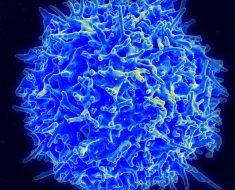West syndrome is an age-related epilepsy syndrome that is most common within the first 12 months of life. Due to the poor prognosis associated with the condition, treatment is usually initiated in a swift and aggressive manner following diagnosis. Treatment aims to deliver the best quality of life by controlling the occurrence of seizures, the fewest side-effects, and the lowest number of medications. Unfortunately, medical treatment options are somewhat different for infantile spasms than for other seizure types and the usual anticonvulsants prove ineffective.
First-line of treatment includes:
Adrenocorticotropic hormone (ACTH)
This is the oldest approved medication for the treatment of West syndrome. Numerous studies have shown that steroid therapy using ACTH causes a reduction or complete stop to the spasms and that it even improves the EEG in approximately 50-75% of patients within a few weeks. It is given as a daily intramuscular injection but uncertainties such as its formulation and the duration of its administration still remain. Even the optimal dose is not known; many doses of ACTH have been trialed but there is still no evidence to suggest that larger doses are more effective than lower doses for treatment.
Side effects are common and include: irritability, hypertension, infection, cerebral atrophy (reversible), hypertension, metabolic abnormalities, osteoporosis, sepsis, and congestive heart failure.
Vigabatrin (VGB)
This anti-seizure medication has a success rate of approximately 50% in cases of West syndrome. It appears to be particularly effective in cases associated with tuberous sclerosis complex and acts by increasing the amount of the neurotransmitter GABA in the brain.
VGB is generally well-tolerated in children such that most side effects are not serious. These include: headache, dizziness, fatigue, weight gain and decreased muscle tone. However, a potentially serious side effect is permanent retinal toxicity which results in visual field constriction (tunnel vision) but no apparent change in central vision. Fortunately, no cases of blindness have been reported and the risk of retinal defects due to VGB appears to be lower with short-term use of VGB, before increasing after 6 months of chronic administration.
While more evaluation is necessary, there does not appear to be much difference between treatment with ACTH and VGB in terms of control, outcome and severe side-effects.
Second-line treatment includes:
When ACTH or VGB prove ineffective, other agents can be tried. Unfortunately, there is not enough evidence to suggest that these are effective in treating West syndrome.
These agents include corticosteroids (such as prednisolone and prednisone), anti-seizure medications (such as Levetiracetam and Nitrazepam), Pyridoxine, intravenous immunoglobulin (IVIG), surgery to remove the seizure-generating parts of the brain and a ketogenic diet (a specialized very-high fat diet already used in treating many types of epilepsy).
Of these, the ketogenic diet has been tested and been shown effective, with up to 70% of children having a 50% or more reduction in seizure.
Surgery
This involves removing the area of cortical abnormality in a procedure called cortical resection. The aim of this is to control the seizures or improve brain development. It is primarily considered as a last resort for patients who:
- Have not responded to ACTH and/or Vigabatrin therapies
- Show structural brain abnormalities in a defined region (seen by neuroimaging studies)
References
- http://patient.info/doctor/wests-syndrome-infantile-spasms
- http://www.tsalliance.org/infantilespasms
- http://childneurochannel.org/disorders/infantile-spasms/
- https://www.aan.com/Guidelines/home/GetGuidelineContent/553
- http://www.carsonharrisfoundation.org/pdf/IS-Neurologist.pdf
- http://nordphysicianguides.org/infantile-spasms/treatment/
Further Reading
- All West Syndrome Content
- West Syndrome – What is West Syndrome?
- What Causes West Syndrome?
- West Syndrome Prognosis
- West Syndrome Diagnosis
Last Updated: Aug 23, 2018

Written by
Afsaneh Khetrapal
Afsaneh graduated from Warwick University with a First class honours degree in Biomedical science. During her time here her love for neuroscience and scientific journalism only grew and have now steered her into a career with the journal, Scientific Reports under Springer Nature. Of course, she isn’t always immersed in all things science and literary; her free time involves a lot of oil painting and beach-side walks too.
Source: Read Full Article





